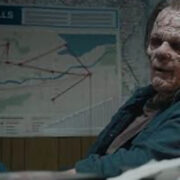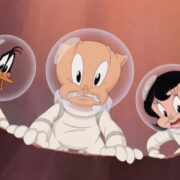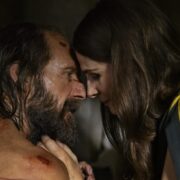FORCE MAJEURE: A Dark Comedy That Cuts Close To The Bone
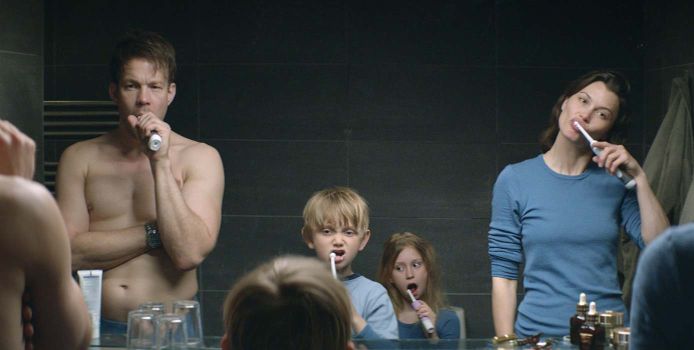
Alistair is a 25 year old writer based in Cambridge.…
Fun relies on spontaneity. If you over-plan something, the less likely it is that people are going to have fun, because nothing will ever live up to expectations. Happiness equally relies on spontaneity and equally cannot be forced; the family in Force Majeure appear to be happy as the movie starts, yet look closely and you’ll see everything isn’t so straightforward.
After all, they have to book an expensive holiday to the French Alps in order to spend time together and most importantly, wear some of the creepiest matching pyjamas ever committed to celluloid whilst sleeping in the same bed as a family. They are trying to give off the allusion they are not just a happy family, but an inseparable one. In split seconds, the very idea of a happy family is put into question, underlining how forced the inter-family relationships appear.
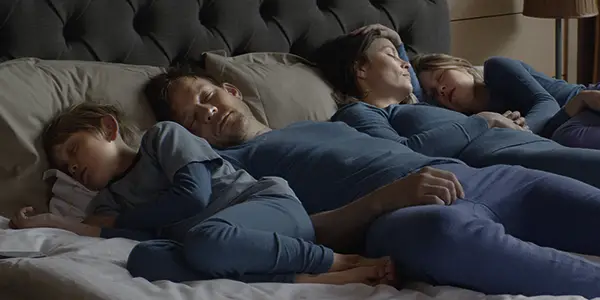
Just like fun, disaster equally relies on spontaneity and in split seconds can change everything for the worse. Something that you probably won’t expect is how fun it can be watching an entire family have a near-breakdown on their holiday – even if it isn’t the superior dark comedy that’s been advertised (for many viewers it will cut very closely to the bone to barely even register as a comedy), it is still an excellent and amusing portrait of a family in crisis.
One of the most awkward family holidays ever depicted on screen
The movie encapsulates a week-long skiing holiday, between a long married couple and their two children. One morning at breakfast at an alpine cafe, an avalanche erupts, whilst Tomas, the dad (played by the fantastically named Johannes Bah Kuhnke) idly sits at the table filming it, assuming it’s a controlled avalanche. The avalanche approaches the cafe and instead of grabbing his wife and children, runs away screaming on his own. It turns out it was a controlled avalanche, yet his reaction to the event exposes many wounds in the family relationship everybody was ignoring before, despite always being in plain sight.
The differing interpretations of the event between the family members invites comparisons to Rashomon – yet there are no big revelations, as the event as we see it at the start is exactly how it plays out, meaning the movie feels slightly aimless at times as it reiterates the same statements about Tomas being a bad father to yet another character.
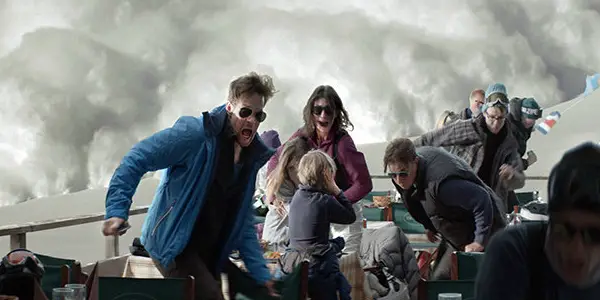
The family are upper middle class, something that has invited comparisons with Michael Haneke, the Austrian director who has a similar preoccupation with showing middle class families falling into despair. Whereas his movies are intense dramas, Force Majeure is a dark comedy – yet its dry Swedish humour and fondness for long takes means many scenes come across as awkward instead of hilarious, something that I imagine was director Ruben Ostlund’s intention. I’m English and even I feel awkward when confronted with the dry wit that characterises Scandinavian humour.
Luckily, the insights into the shifting power dynamics in the family unit are always gripping, even when the film proves the maxim that comedy doesn’t transcend language barriers to be true. It’s fun without being funny, coasting by on being plainly amusing whereas it will (probably) be a laugh riot for Swedish viewers. There are laughs to be had – but that may be because the sight of a grown man crying is inherently funny to the point of crossing any language barriers effortlessly.
Is it even a comedy?
The positives outweigh the negatives, namely the beautiful cinematography from Fredrik Wenzel, who manages to capture the graceful beauty of skiers moving down the slope as well as he can capture long takes of awkward humour. Even when some of these shots prove to be patience testing (such as an unbroken five minute shot in a ski bar soundtracked by the entirety of a Swedish House Mafia song), they never look anything less than stunning. The directorial style of Ruben Ostlund takes some getting used to – even after I finished watching Force Majeure I felt I needed to watch some more of his films to fully understand and appreciate his approach here, as in many scenes it never becomes clear whether it’s intended to be funny or not.

It creates a bizarre combination of inappropriate and awkward laughter, where we find ourselves laughing as a defence mechanism as the alternative is sitting in an awkward silence. Even though I feel the dryness of the humour has been lost in translation, even if it’s biting commentary on inter-family relationships hasn’t, it is still written and performed in such a unique way you do find yourself wanting to watch more comedies like this in order to get fully attuned to that sense of humour.
Verdict
If you’ve ever been on an awkward family holiday (and let’s face it here, who hasn’t?), then there is plenty in Force Majeure that you will relate to and enough to recommend it. Yet its use of long-takes and other social realist filmmaking techniques mean it often plays too close to the bone, leaving you feeling uncomfortable more frequently than in fits of laughter.
By the time the film is over, you too are glad that the holiday is finished and that the family are unlikely to ever visit there again. We may soon be making a return visit, as it was recently announced that Julia Louis-Dreyfus will be starring in an American remake of the film – it may not be as good as the original, but with a comedy talent like hers, it’s enough to be cautiously optimistic that it may definitely be funnier.
Have you seen Force Majeure, and most importantly, did you find it funny?
Force Majeure was released in the US last year and the UK this year. All international release dates can be found here.
(top image source: TriArt Films)
Does content like this matter to you?
Become a Member and support film journalism. Unlock access to all of Film Inquiry`s great articles. Join a community of like-minded readers who are passionate about cinema - get access to our private members Network, give back to independent filmmakers, and more.
Alistair is a 25 year old writer based in Cambridge. He has been writing about film since the start of 2014, and in addition to Film Inquiry, regularly contributes to Gay Essential and The Digital Fix, with additional bylines in Film Stories, the BFI and Vague Visages. Because of his work for Film Inquiry, he is a recognised member of GALECA, the Gay & Lesbian Entertainment Critics' Association.









